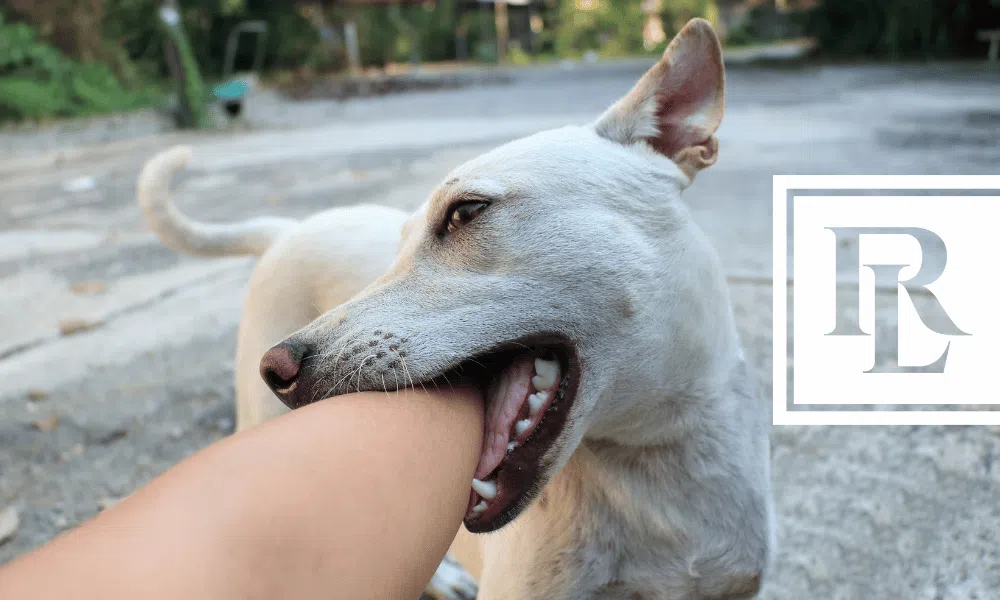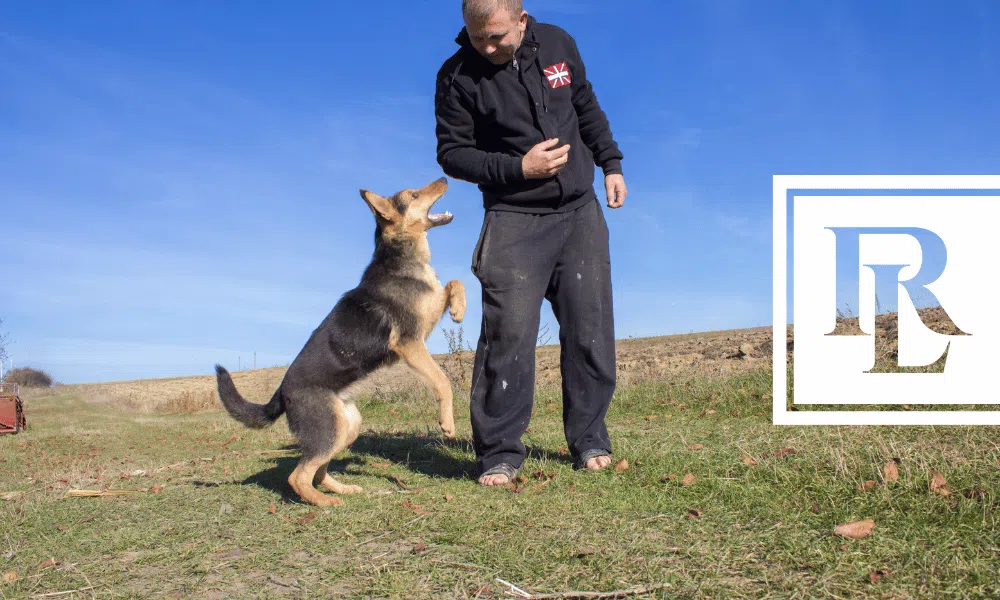New England Dog Bite Lawyer
If you or a loved one has been injured in a dog attack, it’s crucial to seek the right legal help. At Rob Levine Law, we understand the physical and emotional toll a dog bite injury can take. With over 25 years of experience advocating for clients in the New England area, our team is committed to ensuring you receive the justice and compensation you deserve.
Available 24/7 | Win or No Fees®
Home » New England Dog Bite Lawyer
Legally Reviewed by:
Last Updated:
June 20, 2025
Table of Contents
Why Choose Rob Levine Law?
Our firm is dedicated to delivering personalized service for each client. We know that no two dog bite cases are alike, and we tailor our approach to meet your unique needs. Here’s what you can expect when working with Rob Levine Law:
- Aggressive Approach: We take an assertive, results-driven approach to personal injury law, making sure your rights are protected.
- Proven Results: We’ve helped over 50,000 people and recovered over $2 billion in injury compensation and disability benefits. Including:
$731,000
- Dog Bite Accident
Client was walking his dogs in Providence Rhode Island, when a dog ran out from a yard in which the gate was not closed. The dog attacked our client, leaving bite wounds on his leg. The client had previously had a hip replacement surgery which had completely healed. The wounds quickly became infected, even though our client immediately sought out medical treatment. The infection caused by the bite forced our client to have two additional surgeries to completely remove and clean the hip device because of the infection. Client lost months from work, undergo painful and invasive surgery, to fight the severe infection and left our client with large life long scars.
$55,000
- Dog Bite Accident
Client was walking his dog in Warwick. During the walk a pitbull named Xavier started fighting with our clients dog. Our client broke up the fight between the dogs. Rescue came to scene along with police. Client was treated and released. The next day an infection formed causing the client to be hospitalized for 6 days.
Attorney on Case
$30,000
- Dog Bite Accident
Client was at a house in North Kingstown visiting friends. During the visit the defendants dog, which was a beagle lab mix attackec our client, biting the face and lip which left a scar.
Attorney on Case
$15,000
- Dog Bite Accident
Client 3 years old was outside playing the downstairs neighbor let her dog out and the dog ran over and bit the client. The child was rushed to the hospital where she received several stitches on her hands, The Norton Police were on the scene during the situation.
Attorney on Case
- Accessibility and Trust: Whether you prefer a remote consultation or an in-office meeting, we’ll work around your schedule to ensure that we’re available when you need us most.
We believe in transparency. When you work with us, you’ll understand the entire legal process, and we’ll clearly explain your options. We charge a straightforward 33% fee for personal injury cases, and we offer a 25% discount to first responders, police, fire, rescue, and military personnel. Our Free Fee Guarantee® means there’s no fee unless you win.
Understanding Dog Bite Injuries and Your Legal Options
Dog bite injuries can range from minor scratches to severe wounds requiring extensive medical treatment. In many cases, victims suffer from not just physical pain, but emotional trauma as well. According to the Centers for Disease Control and Prevention (CDC), the number of fatal dog attacks has increased significantly, with 98 fatalities recorded in 2022 alone—a 104% increase from 2019. Given the prevalence of dog ownership in New England, where approximately 27.4% of households have dogs, the risk of dog bites is higher than ever.
If you or someone you care about has suffered from a dog bite in New England, whether in Rhode Island, Massachusetts, Connecticut, or New Hampshire, we are here to guide you through the legal process. Our dog bite lawyers specialize in representing individuals who have been injured due to the negligence of a dog owner. Let us help you get the compensation you need to heal and recover.
Common Dog Bite Injuries and Potential Compensation
Dog bite injuries can lead to a variety of physical, emotional, and financial challenges. Victims may experience pain, infection, permanent scarring, or even emotional trauma such as PTSD. It’s essential to seek legal counsel as soon as possible to ensure your rights are protected.
Compensation for Dog Bite Injuries can include:
- Medical Expenses: Coverage for hospital bills, surgeries, and ongoing treatment.
- Lost Wages: Compensation for time off work due to the injury.
- Pain and Suffering: Financial relief for the physical and emotional toll of the attack.
- Punitive Damages: In cases of extreme negligence or reckless behavior, you may be entitled to additional compensation.
Wondering what your case might be worth? Learn more about average dog bite settlements.
What to Do After a Dog Bite Attack
If you’ve been bitten by a dog, immediate steps should be taken to protect your health and your legal rights. First, seek medical attention immediately—even for seemingly minor injuries. Document your injuries, take photos, and get the contact information of the dog owner if possible. If the incident occurred in a public space, make sure to gather any witnesses’ information as well.
For more detailed guidance on what to do after a dog attack, check out our FAQ on What to Do After a Dog Attack.
Dog Bite Law in New England
Each state has its own set of laws regarding dog bites. Understanding these laws is crucial to navigating your claim effectively. In New England, there are specific statutes that determine when a dog owner can be held liable for a dog bite. For example, Massachusetts follows a “strict liability” standard, meaning that a dog owner is automatically responsible for injuries caused by their dog, regardless of the dog’s history.
Learn more about state-specific laws through these links:
Why Contact a Dog Bite Lawyer Today?
Dog bite injuries can be life-changing, and the sooner you act, the better your chances of securing the compensation you deserve. We offer free consultations and are available 24/7 to discuss your case. Remember, with our Free Fee Guarantee®, there’s no financial risk to getting the legal help you need.
If you or a loved one has been the victim of a dog bite in the New England area, contact us today for a free consultation. Our experienced dog bite attorneys are here to help you navigate the legal process and fight for the compensation you deserve. Available 24/7 – Win or No Fees. Reach out to us today for a free case evaluation, and let us help you take the next steps toward justice call 800-742-3920 or contact us online.
Client Reviews: Trusted by Over 50,000 People
We are proud of the relationships we’ve built with our clients. At Rob Levine Law, we treat every client like family, offering compassionate care and aggressive legal representation. But don’t just take our word for it—check out our client reviews to see how we’ve helped countless people recover from injury and find justice.
Thank you!!!
Their staff completely took care of the whole process. I highly recommend Rob Levine Law. They walked me through the whole process one step at a time. They really stepped up during the hearing. I felt led through the whole process.
J Finley
I highly recommend Rob Levine Law Firm.
Daniella Martinez did an outstanding job keeping me updated on how my claim was proceeding. She listed to my concerns and addressed each and everyone. She exhibited compassion and understanding for my personal issues relating to my injury. I’m very thankful for her support. I highly recommend this law firm and hopefully you will have Daniella Martinez helping you through your process. Blessings to you all!!!! Thanks again. Sincerely Janet Denene Tunkel
Denene Evans
Thank you so much.
I’m so glad I chose Rob Levine Law, They gave me a life changing experience.
Louis Williams
FAQs About Dog Bite Claims
Can I still file a claim if the dog has never bitten anyone before?
Yes. In many New England states like Massachusetts and Rhode Island, dog owners are held strictly liable, even if the dog has never shown aggression or bitten anyone before. The law focuses on the injury and the owner’s responsibility, not the dog’s past behavior.
What if the bite happened on private property where I was invited?
If you were lawfully on the property, like visiting a friend’s house, you still have the right to file a claim. Property owners and dog owners are responsible for keeping their guests safe from foreseeable harm, including dog bites.
What happens if the dog owner doesn’t have insurance?
Even if there’s no insurance, you may still be able to recover compensation through a lawsuit directly against the dog owner. An experienced attorney can help assess whether other forms of liability or compensation are available.
Will I have to go to court to win a dog bite case?
Most dog bite cases settle outside of court through negotiations with insurance companies. However, if a fair settlement isn’t offered, your attorney may recommend filing a lawsuit to protect your rights and maximize your compensation.
What if I was partially at fault, like provoking the dog?
In some states, your compensation could be reduced if you were found to have provoked the dog. That said, many New England laws still protect bite victims unless the provocation was intentional or extreme.
Get Your Free Consultation Now
"*" indicates required fields
Notable Case Results
$22,000
Client was with her uncle in Pawtucket RI, they were walking down the street to get some ice cream when a dog came out of a yard and bit her in the arm. Client’s uncle tried shielding her and pulling her away but the dog was latched on. Had stitches and weeks of antibiotics and […]
When I searched online for an attorney to handle my claim with the military I was lucky to find Rob Levine.
They have proven to be very knowledgeable in personal injury law and are willing to fight for you, as they did so very effectively. I am so glad they picked up the phone when I called and took my case. I really did appreciate their honesty and dedication to my case and the success we […]
James Hudson
Big shout out to Rob Levine & his Law firm family thx for everything you've done for me & my family.
Best firm for law services…. customer service is off the charts & they stay in touch with you though the whole process.
Cidalia D.
Thank you Rob, you and your team rock!
I have been a client of Rob Levines’ for 2 cases. Both cases, Rob’s talented, hard working, teams helped me win 🏆. I’m so happy and proud of all the people who helped me. I got really hurt, and they were there to listen, and support me. Thank you so much y’all.
Moe Adams
Additional Resources
Related Pages
Dog Attack: What to Do Dogs are a man’s best friends, however, in just a blink of an eye, a...
In Rhode Island, there is one standard that we look at to begin the decision tree as to whether or...
If a dog bit you and you sustained injuries including puncture wounds, lacerations, infections, crushing injuries, broken bones, psychological trauma,...







